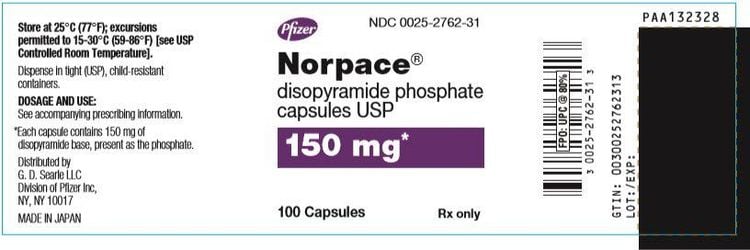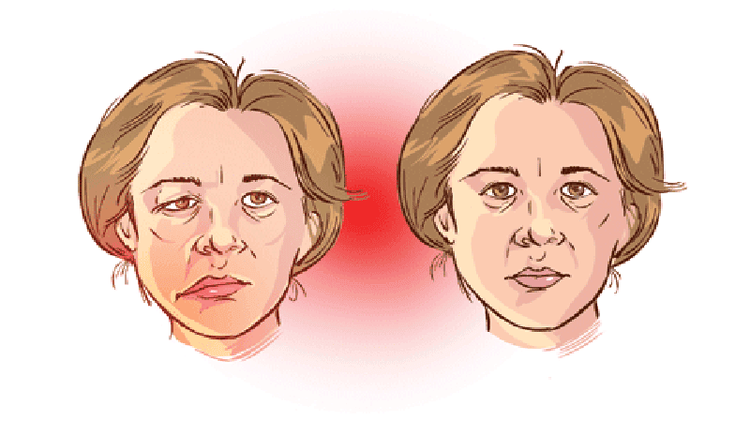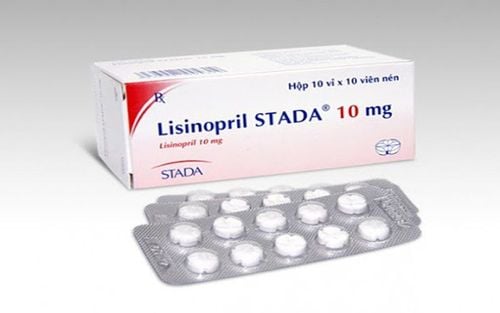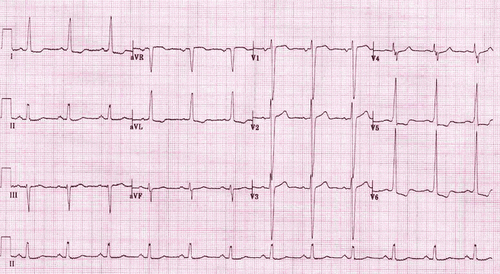This is an automatically translated article.
Arrhythmia is one of the dangerous diseases, which can cause death if not treated appropriately. There are many different classes of drugs to treat arrhythmias, including Disopyramide with the trade name Norpace. So what is Norpace drug?
1. What is Norpace?
What is Norpace? It is actually a medication used to treat some serious (possibly fatal) heart rhythm disorders, such as persistent ventricular tachycardia. Norpace is used to restore a normal heart rhythm and maintain a regular, stable heart rhythm.
Disopyramide is the active ingredient of Norpace, which is one of the antiarrhythmic drugs that works by inhibiting certain electrical signals conducted in the heart muscle and causing irregular heartbeats. Treating irregular heartbeats can reduce the risk of blood clots forming and thereby reduce the risk of a heart attack or ischemic stroke.
2. How to use Norpace
Norpace is used orally before or after meals as prescribed by the doctor. If taking the immediate-release form, patients will usually take it 4 times daily or as directed by their doctor.
If you are taking Norpace extended-release, usually use it twice a day or as directed by your doctor. When using, it is necessary to swallow the tablet whole, do not crush or chew it because it can release all active ingredients at once and increase the risk of side effects. Also, do not split Norpace extended-release tablets unless they are graduated and told to do so by your doctor or pharmacist.
Dosage of Norpace drug depends on the age, kidney and liver function, medical condition and response to treatment of each patient. The use of Norpace medicine continuously and regularly according to the indications will bring the best treatment effect. Patients should inform their doctor if their condition does not improve or tends to worsen.

Thuốc Norpace cần được sử dụng đúng liều lượng và thời gian
3. Side effects of Norpace
Although Norpace often provides excellent benefits for patients with irregular heartbeats, it can sometimes cause another serious arrhythmia. Therefore, when starting treatment with Norpace, the doctor may recommend that the patient stay in the hospital for careful monitoring and emergency treatment if necessary. Talk to your doctor about the benefits and risks of taking Norpace.
Common side effects of Norpace :
Dry mouth ; Constipation ; Nausea ; Abdominal pain/flatulence/distension; Blurred vision; Dizziness, dry nose/eyes/throat; Urinary problems (such as difficulty urinating or unusually frequent urination). If any unusual symptoms of Norpace persist or worsen, please inform your doctor or pharmacist promptly.
Call your doctor right away if you have the following rare serious side effects of Norpace:
Symptoms of low blood sugar (such as shaking, hunger, headache, sweating); signs of liver disease (eg, persistent nausea/vomiting, abdominal pain, yellowing eyes, jaundice, dark urine); Muscle weakness; worsening symptoms of heart failure (eg, shortness of breath, ankle/feet swelling, unusual tiredness, weight gain); Faint; faster or more irregular heartbeat; Severe dizziness. A serious allergic reaction to Norpace is very rare. However, if there are signs of an allergy to Norpace, the patient should immediately call the nearest medical facility: generalized rash, itching with swelling of the face/tongue/lips/throat, severe dizziness, difficulty breathing.
4.Notes when using Norpace
Before taking Norpace, the doctor or pharmacist should ask about the patient's history of allergy to disopyramide and any other allergic conditions. Norpace products can include many different ingredients and may cause allergies or other problems.
Before using Norpace, please tell your doctor or pharmacist your previous medical history, especially:
Diabetes; Glaucoma ; Kidney disease; liver problems; Myasthenia ; Urinary tract diseases (eg, prostate enlargement, urinary retention). Norpace has a low incidence of dizziness. Patients should limit their use of substances that cause dizziness, such as alcohol or marijuana. In addition, if you are dizzy, do not drive, use machines, or perform tasks requiring alertness until you can be sure to do so safely.
Before surgery, the patient should tell the surgeon that he or she is using Norpace. Disopyramide may cause a condition that affects heart rhythm (QT prolongation). QT prolongation can cause severe fast/irregular heartbeat and other symptoms (such as dizziness, fainting) that require immediate medical attention. The risk of QT prolongation is increased if the patient is taking other medicines that can prolong QT, so before using Norpace, tell your doctor or pharmacist about all the medicines you are taking. and current health conditions such as: cardiovascular problems (heart failure, bradycardia, QT prolongation in ECG), family history of QT prolongation in electrocardiogram, family history of sudden death due to cardiac arrest heart.
Hypokalemia or hypomagnesemia may also increase the risk of QT interval prolongation in patients receiving Norpace. This risk may be increased if you take Norpace with certain medicines such as diuretics or if you have excessive sweating, diarrhea or vomiting.
Norpace may cause hypoglycemia, especially in patients with diabetes, heart failure, impaired liver/kidney function or nutritional problems. Tell the doctor immediately if the patient has symptoms of sudden low blood sugar such as sweating, shaking, heart palpitations, hunger, blurred vision, dizziness, tingling hands/feet. Then diabetes medications need to be adjusted along with the accompanying diet or exercise program.
Older adults may be more sensitive to the side effects of Norpace, especially problems with urination and QT prolongation. During pregnancy, Norpace should be used only when clearly needed because disopyramide can (rarely) induce labor early in pregnancy. Norpace has the potential to pass into breast milk and cause effects on a nursing baby, so consult your doctor before breast-feeding.

Bệnh nhân nhược cơ nên lưu ý khi dùng thuốc Norpace
5. Norpace drug interactions
Drug interactions can change the way Norpace works or increase your risk of serious side effects. Some products that may interact with Norpace include: fingolimod, calcium channel blockers (diltiazem and verapamil).
Besides disopyramide, other drugs that can affect heart rate (prolong QT) include: amiodarone, dofetilide, flecainide, ketoconazole, pimozide, procainamide, quinidine, sotalol, macrolide antibiotics (such as clarithromycin, erythromycin) , quinolone antibiotics (such as sparfloxacin)...
Other drugs that can affect the removal of disopyramide from the body, which affects the effectiveness of disopyramide include: phenytoin, rifampin, saquinavir. .. Symptoms of Norpace overdose may include: fainting, irregular heartbeat, slowed breathing. Do not share Norpace with others.
If you miss a dose of Norpace, take it as soon as you remember. If it is almost time for your next dose of Norpace, skip the missed dose, do not double it. Store Norpace medicine at room temperature (25 degrees Celsius), avoid light, moisture, do not store Norpace medicine in the bathroom. Do not flush Norpace down the toilet or down the drain when it has expired or is no longer needed.
Please dial HOTLINE for more information or register for an appointment HERE. Download MyVinmec app to make appointments faster and to manage your bookings easily.
Reference source: webmd.com













